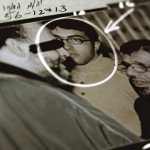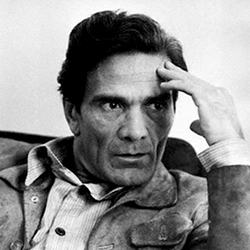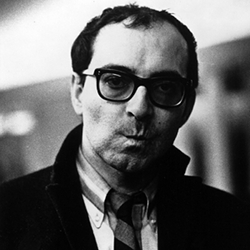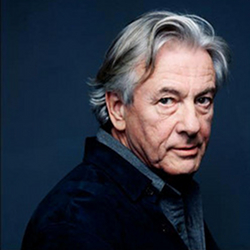
True/False Film Festival: 2014 Recap
Editor’s Notes: The following reviews are part of our coverage of the 2014 True/False Film Festival. For more information visit truefalse.org and follow True/False on Twitter at @truefalse.
Actress
dir. Robert Greene
This is a true story. During the Q&A of the screening I attended of Actress, Robert Greene’s complex and artfully human new documentary, one woman couldn’t get through her question before losing her struggle with tears. She commended Brandy Burre, the subject, more or less for her vulnerability. Then she lost it, sobbing silently in the unlit audience as slews of “I thought this scene was…”-es and “How did you…”-s finished off the fifteen minutes.
For everything Actress is, emotionally devastating isn’t the first attribute I’d assign it. Burre, who’s theater-trained, had broached ‘making it’ with a role on The Wire. Soon after, she opted out of the industry to be a mom. Her six-year absence from acting sapped her and strained her relationship with her partner, the father of her children. The documentary, chronicling her reentry into the biz, has its emotional turbulences, to be certain. But its strengths lie in its insight and patience, as the actress in Burre comes out more and more to interact with the camera. Those aren’t necessarily the most wrenching traits.
Then you realize: This very act Greene and Burre pull off, the performance of being human and the disparate yet peer vulnerability of both being yourself on camera and being a version of yourself—the whole egression is profoundly naked. This person, Burre, doesn’t simply give us herself; she reveals her ways of defense. You have no useful shield when others know precisely where it will crack. If great drama takes you through the same wringer as its character, or great horror traps you with the same terror as the victims, then how could Actress not strip us of our own armor? That crying woman, helpless and childlike, was left defenseless. Good luck with those shields.
It’s easy to pick on the big guy. “Oilman” belongs to an elite lexicon of begrudged labels. The title of Boynton’s sophomore documentary, which follows the dealings of Kosmos Energy, a small oil company, with the Ghana government, is more of a play on the stigma than a proclamation. In fact, the title comes from an African phrase. A “big man” is man who’s procured power via wealth and has a taste for no other ambition. It’s interesting, then, that Boynton gives the oil men at the center of the doc’s economic-thriller narrative a rather human treatment. Too often these buzzwords, like “oil men,” reduce actual people to cutout roles of our social sphere. These men are villains. (Or they’re victims, depending on your politics.) Nigeria, which the documentary often holds in the same breath as Ghana, is infamous for its political corruption. The officials from Ghana working with Kosmos similarly have to fight against stigma. Agreements get caught up in international court, ominous investors puppeteer proceedings, militants resist the foreign industry presence, and the reputations are ever fragile. The doc bogs down in the middle, but its perspective is fresh. There is a dubious presence that hangs over the film (from their Wall Street high-rise), but Boynton approaches the men on screen without prejudice. Their ambition may be their downfall professionally, but it is no damnation morally. Convention does not prohibit good storytelling. Unengaged storytellers do. E-Team, which is a rather typical international thriller-documentary, benefits a good deal from the simplicity of following passionate people do the things they are passionate about. It doesn’t hurt that the passion, here, is saving the world. Chevigny and Kauffman follow four members of the Human Rights Watch activist group: husband and wife Ole Solvang and Anna Neistat are the focal subjects, but Peter Bouckaert and Fred Abrahams provide substantial proof of the organization’s investment and impact. The doc takes us from Syria to Libya, digging into the some of the world’s most unstable corridors. They uncover conspiracies (the Syrian chemical bombings) and massacres. They make cases for significant political pressures (no fly zones). They have the power of access and knowledge. In wars of revolt, guerilla brutality, and tyranny, E-Team makes a case for these weapons. The directing team invests some time in contextualizing the motivation and duty of the central couple. There’s more than one instance of the directors cutting from a terrified family in the Middle East to Ole and Anna with their son (Ole is the step-father). This adds a certain depth to the film, but the we-are-them isn’t entirely sussed out into something satisfying on its own. The doc’s most riveting when worlds are at stake—from families cowering at the sound of jets to Russian reporters accusing Anna of being bought. The scariest thing is that, other than these activists, it seems the only people who want to be on someone’s side are the people dying. It’s something of a trademark of Linklater’s, telling the simplest of stories in the most universal of ways. By narrowing their scope, Linklater widens the depth of his best films. His Midnight trilogy doesn’t so much tell a story as it allows two people to grow. For his twelve year experiment, he literalizes that quality. The effect is disguise: the enthralling gimmick is lost in the enthralling film. To True/False, though, Boyhood marks an important evolution. While primarily a nonfiction festival, the “false” in True/False doesn’t always refer to rebellious documentaries. “Co-conspirators” David Wilson and Paul Sturtz have made bold decisions with the fest’s fictional offerings, but Boyhood is the biggest draw—perhaps in the history of the festival. There was a clear anticipation for the closing night screening, the film’s only. It was True/False’s event to not miss. The anticipation may seem cheap. After all, is it lazy hype for a narrative film by a major independent filmmaker to be the most buzzed about film at a fest celebrating, chiefly, nonfiction affair? I’d say the fest’s earned this. Attendance has been booming for years on the backs of docs like King of Kong, The Interrupters, Bully, Undefeated, 20 Feet From Stardom, Blackfish, Cutie and the Boxer, and The Act of Killing—serious firepower. At any festival, an ‘Are you going to be there?’ mentality develops. Certain movies acquire a special mystique: ‘Are you going to be there? You must!’ Boyhood is starpower. It deserves the anticipation. But it also typifies, in a narrative film, everything the fest has built its reputation on. Its form and conceit tap into nonfiction premises. Its payoff is exploratory and honest. It’s tightly scripted, which is its largest genre standout, but, in true Linklater form, the script fades into these characters. It forms an illusion of organic storytelling. It’s the perfect complementary inverse to what True/False is. Colonialism is an oppressive, unjust, often deadly mechanism of industrial imperialism. Peoples, cultures, resources are exploited, sapped, and squandered. (Think of War of the Worlds.) It’s not a morally pleasant thing. Neither is this missed opportunity. Olsson breaks the film into nine chapters, each one being unrelated archival footage. He structures the footage—some of it grotesque, all of it meant to shock—around Frantz Fanon’s The Wretched of the Earth, a radical piece of violent revolution literature. Olsson lets Ms. Lauren Hill’s narration of The Wretched passages align the film with the text. The doc becomes subordinate to the book, its images reinforcing the flamboyant prophecy of the language rather than juxtaposing or layering it with perspective. It’s as if we stepped into the world’s most hostile poetry slam. The doc, immediately, is propaganda. It’s a disinteresting film. For all its pomp, pretense, and mesmerizing rhythm, the moral points made—that colonialism is harmful and its victims are marginalized into minutia—are unoriginal. But that alone does not sour a doc. Rather, it here aggresses on the viewer a series of cherry-picked and/or gruesome sequences that do little to justify the existence of this visual aid. There is a late scene where an African general explains his refusing Western food aid. Send us the tools and methods to produce our own food, he says. He wants to foster self-reliance through sophistication. Concerning Violence opts to bludgeon. The frontiersman is essential to the American mythos. Religion is right alongside it. In this way, The Overnighters is a film taking stock of the gospel of a country. Ideals of building a foundation or being a neighbor have shifted and somewhat faded. This is a world where the traditional frontiers have been all but pioneered away and communal dynamics are moving from down the block to up in the Cloud. There are people among us who have been forgotten. But where we crave a hero, we crave his tragedy. From the outset, Reinke harbors something. It takes the turbulence of his charity, city, and home to unfurl his jovial leadership. Those whom he relied on abandon him. A background check is just that: history. There is no predictive foresight to them. By the turn of the third act, all of Reinke’s goodwill comes into question. He must fight desperately, like those men looking only for a favor of decency, to validate his efforts. We know intention can’t promise reverence; can action? It’s an obvious choice for the fest’s True Life Fund, awarded in partnership with a local church each year to a doc of particularly harrowing content. Private Violence brings us behind the shelter doors, beyond the local news on our TVs, and addresses the common assumptions about victim-abuser dynamics. Why don’t the women leave? Why do they return? How could they feel guilty? Hill wants those questions answered for the audience. (Small surveys asking about the doc’s effect on your awareness were handed out prior to the movie.) The testimony here keeps the film afloat. Deanna, the central victim and a former cop, suffered horrific beatings over a four-day interstate trip with her estranged husband. Her candor and swirl of contradictory emotions is devastating. The evidence is shocking. In the photos, bruises discolor her skin as if entire layers of it were rotting. Studying the pictures, one attorney asks if her injuries were serious. The defense of Deanna’s abuser argues that Deanna had come on the said trip willingly. Private Violence undersells the shock of that being a viable defense position. Hill, who along with featured activist Kit Gruelle participated in the Based on a True Story Conference preceding the fest, does an honorable thing in letting these crimes stand on their own. Gruelle guides her from victim to grieving family, filling in the gaps when needed. It’s a lassie-faire film formally, its only ethical thoroughfare being full exposure of the vile conditions in which these women have been conditioned to live. It’s a plea to reexamine our own attitudes. The directors are cousins and from Rich Hill, MO. They’re more than familiar with the stereotypes that accompany rural Midwestern towns. There seems to be little other reason for this documentary to exist than to undermine those stereotypes. The cousins get more than enough out of that from the get go, the introductory title sequence swelling to a tenuous, lyrical cut that immediately places the subjects in a position of resistance. We befriend three Rich Hill teens. Andrew, with unreliable but well-intentioned parents (his mother actually died this January), is the film’s outward soul—its hero. He’s a near endlessly compassionate kid who loves his twin sister, football, and makes sure his jacket looks just right as the school bus pulls up. Appachey and Harley are the similar duo. Appachey’s father left him. Harley’s mom is in prison for killing his father after the man did something awful. It’d be shocking if these boys weren’t affected. But the more of them Rich Hill gives us, the more their pain and lashing out morphs into moving and genuine longing. Things don’t exactly begin well for these kids. When the doc concludes, we haven’t gone very far either. Some inevitabilities do their thing. Our sympathy deepens, even as the kids sometimes make poor decisions. There aren’t surprises. One reveal might play as a surprise, but it’s certainly no blindside. Rich Hill has the greater impact for it. There’s no aggrandizing. Most of this is familiar. But as the kids open up, Palermo and Tragos open us up. Where pity is the easy emotion, we feel love. On the border of Texas and Louisiana you’ll find a town out of a Mark Twin novel. The people here, in Uncertain, TX, have complex or regrettable pasts. Felons, survivalists, killers: they have this place as their home. They have this film, the doc I imagine Jeff Nichols would make, to show their heart. A policeman early in the doc brands Uncertain an outlaw town. Its residents can easily disappear into the wild and border-hop in order to escape law enforcement. We hear “outlaws” and our imagination rustles up holsters and suspenders. But this isn’t a western. It’s a folktale. McNicol and Sandilands follow four residents. The specific chronicle of their lives we get of each subject comes to a larger head. We’re introduced to one of the men in the middle of a midnight boar hunt. Another man harvests fish from the lake as if the water were his garden. McNicol and Sandilands structure a symbiosis between the four individuals. Often we return to creeping, gorgeous shots of this heavily vegetated lake, trees erect in the water, the surface glass-steady. A foreign weed is overrunning and suffocating the lake. As the narratives of the four unfold, so too does the history of this weed and a local scientist’s investigation into its eradication. The natural state of this lake turns into the doc’s metaphorical spine. The developments in each of the four men’s lives or the revelation of their pasts feed back into the metaphor. It becomes a captivating story about people and cause and effect. This documentary could turn into a superstar. We were privileged at True/False to see the film early, despite it being unfinished. The directors listed the soundtrack, audio, and color as either temporary or untouched. I wonder if it won’t be cut a little more as well. The film sometimes dwells, temporarily distancing us from the doc’s ethereal pulsation. This, of every movie I saw, is the film I can’t wait to return to. I will not break oath. True/False’s classify some screenings so that these films can maintain a “premiere” at other festivals. We break the honor system, the fest loses the privilege of these screenings. For anyone who saw this doc: rare content, common construction.
Big Men
dir. Rachel Boynton
E-Team
dir. Katy Chevigny, Ross Kauffman
Boyhood
dir. Richard Linklater
Concerning Violence
dir. Göran Olsson
The Overnighters
dir. Jesse Moss
Moss examines the way we crave the common hero in uneasy times. During the recent fracking boom in North Dakota, Williston pastor and general cheer-bug Jay Reinke housed in his church incoming men who’d arrived in search of opportunity. These men are in need of jobs. Many of them are in need of second chances. Reinke, to the dismay of much of his congregation, abides.
Private Violence
dir. Cynthia Hill
Rich Hill
dir. Andrew Droz Palermo, Tracy Droz Tragos
Uncertain (work-in-progress)
dir. Ewan McNicol, Anna Sandilands
Secret Screening OrchidRelated Posts
![]()
Kyle Burton
![]()
Latest posts by Kyle Burton (see all)






























